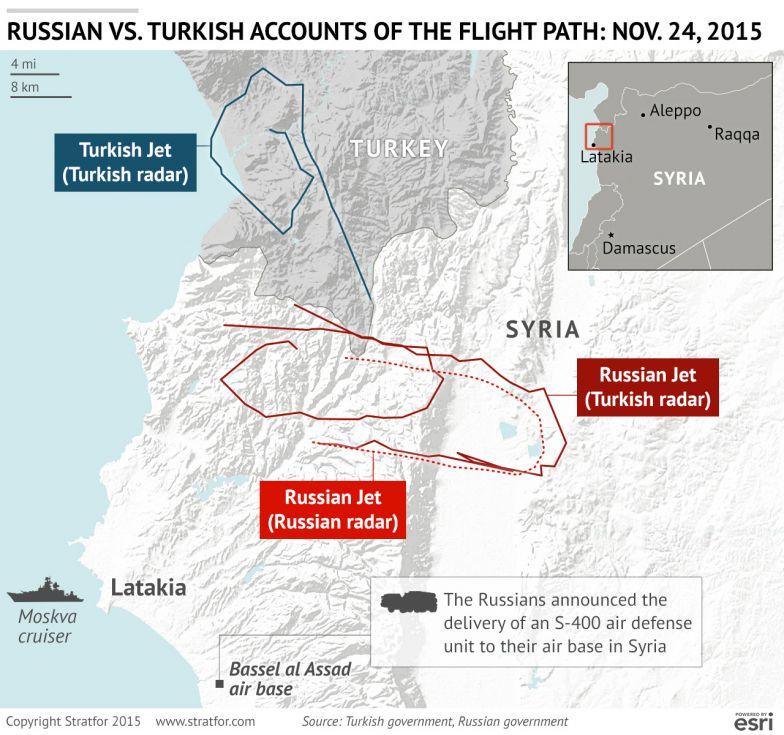
By now the story of the Russian fighter jet, which was shot down over Syrian airspace on Nov. 24, is well documented. But unsurprisingly, the accounts of those involved — namely, Russia and Turkey — differ. Turkey claims the Russian aircraft violated its airspace and was shot down only after repeated warnings. Russia claims that its aircraft flew over only Syrian airspace. The image above shows the discrepancies in those accounts. What no one contests is Turkey's responsibility in downing the plane.
Perhaps this sort of incident was inevitable, given how crowded and complicated the conflict in Syria is. Indeed, since the early days of the Russian intervention in Syria, Turkey, the United States and other coalition partners have expressed significant concerns about the possibility of this exact scenario. Russian aircraft have become more active in Syria, and in some cases Russian airstrikes have occurred in close proximity to where Turkey, the United States and France have been conducting their own operations against the Islamic State.
But there are also strategic reasons that Russia and Turkey would collide. As two Eurasian powers with long imperial pasts, Russia and Turkey have overlapping spheres of influence in parts of the Balkans, the Caucasus, Central Asia and the Middle East. This dynamic brought both empires to war multiple times over nearly five centuries. Turkey is the gatekeeper to the Mediterranean from the Black Sea through its control of the Dardanelles and the Bosporus. That means if Russia wants to send container ships, oil cargoes and warships westward, they pass through Turkey. If NATO wants to threaten the Russian underbelly from the Black Sea, Turkey has to give it permission to do so.
Russia has already responded to the incident by severing military contact and by deploying a cruiser and additional air defense systems to the area. Rumors abound that it may cut exports too. In the meantime, coalition airstrikes against the Islamic State will continue, even as its members behave more warily toward Russian aircraft. If nothing else, the incident has made the Syrian conflict much more difficult to resolve.



